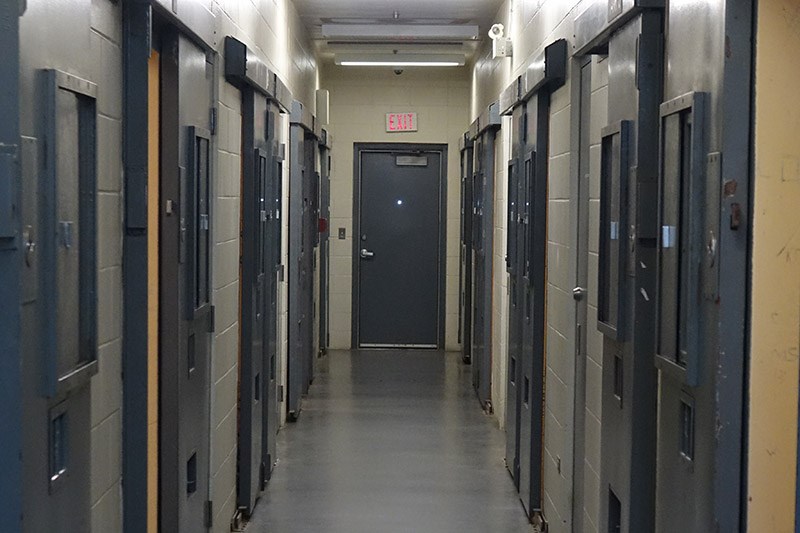A week in one of the Thompson RCMP detachment holding cells is worth a couple of months in prison, a judge said while sentencing a God’s Lake Narrows man to life in prison without the possibility of parole for at least 15 years and 10 months.
Manitoba Court of Queen’s Bench Justice Chris Martin knocked two months off the minimum parole eligibility for Miachael Okemow, who was found guilty of second-degree murder in the 2015 death of Crystal Andrews, because he had to stay in one of the Thompson detachment’s 11 holding cells for five or six nights during his two-week trial in January. On weekends he was flown back to The Pas Correctional Centre.
Martin said he recalled from a tour that the cells are about 15 feet by 15 feet, with a concrete bench along with some blankets or a mattress on top serving as a bed. Prisoners being held there do not have access to the outdoors or to any type of exercise and no way to see or talk to other people unless they have a cellmate when police are forced to put more than one person in a cell due to prisoners volumes.
“The cell is like solitary confinement,” said Martin in his decision. “It is, as a local judge described, inhumane, more so for Michael, suffering as he was with major mental illness, which was a daily concern throughout the trial. Moreover, as a matter of humanity in a civilized society, whether he was guilty or not is beside the point but he was at the time presumed innocent.”
Martin said Canadian courts have long held that poor treatment by the Crown, by the court itself or by the judicial system in general is a valid consideration during sentencing, though it is rarely done and there is not set formula for how credit a judge should give for pre-trial or during trial detention in substandard facilities.
“Here, given the severe nature of the remand facility in Thompson, and the time Micheal spent in it, notably while suffering a major mental disorder, this is one of the rare cases where his sentence, reflected in parole ineligibility, should be reduced to signal the court’s repugnance for how he was held. To be clear, nothing I have stated should be taken as a criticism of RCMP or Sheriff services. They deserve praise for working with the tools they are given and showing empathy.”
Based on the circumstances of the crime and Okemow’s background, Martin calculated that 16 years before being eligible for parole was appropriate.
“Because of the awful way he was held in jail during the trail, I am reducing that by two months,” Martin said.




